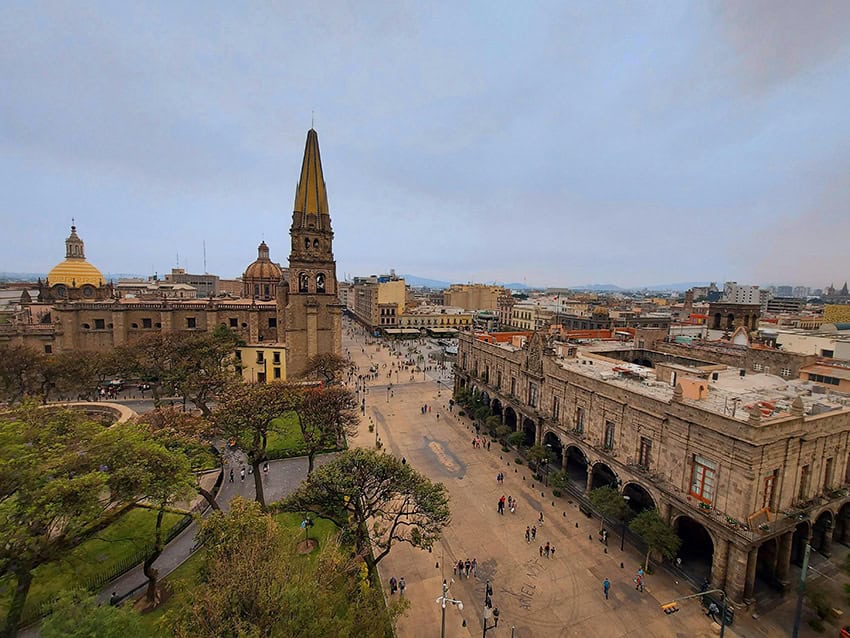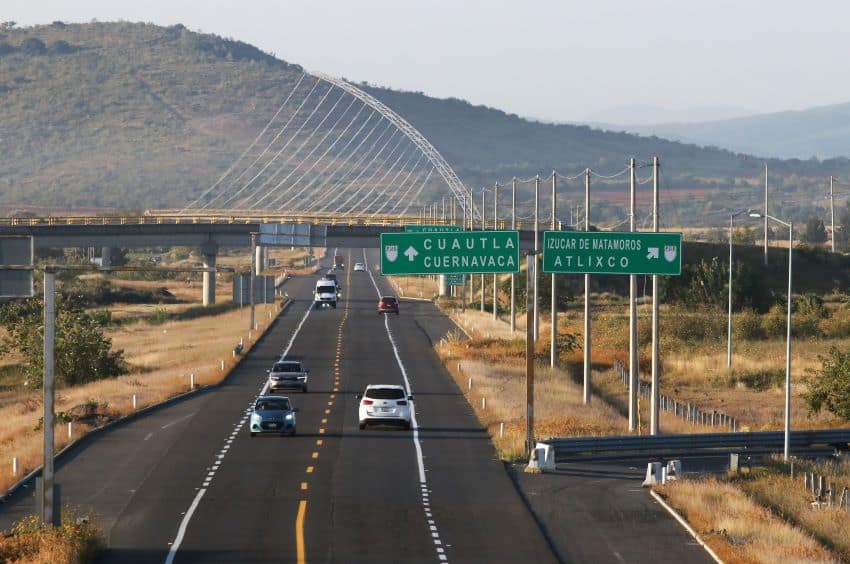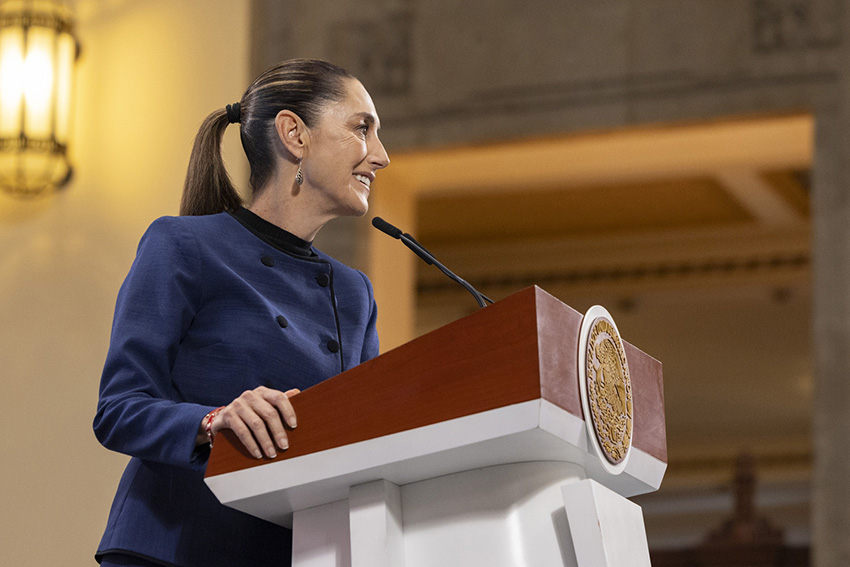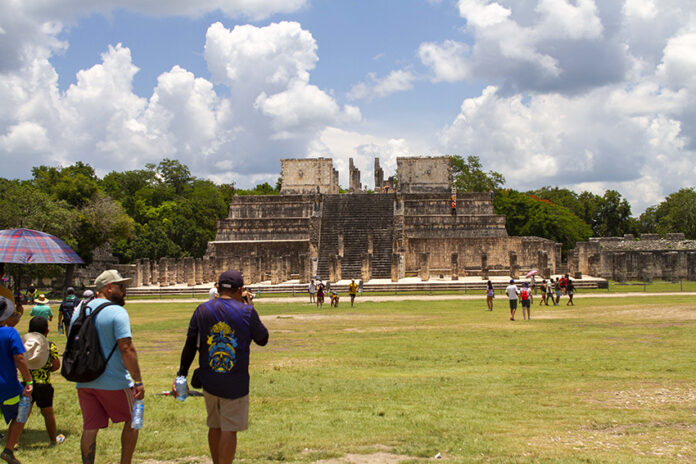The U.S. Department of State updated its travel advisory for Mexico this week, warning for the first time ever of the risk of terrorism south of the border.
The travel alert for Mexico as a whole was maintained at “Level 2 – Exercise increased caution,” but terrorism was added as a risk factor in the country, apparently because six Mexican cartels are now classified as foreign terrorist organizations by the United States government.

In its advisory summary, the State Department says that “many violent crimes take place in Mexico,” including “homicide, kidnapping, carjacking, and robbery.”
“There is a risk of terrorist violence, including terrorist attacks and other activity in Mexico,” adds the summary of the advisory, which was updated on Tuesday.
The advisory says that “the U.S. government has limited ability to help in many parts of Mexico” and “U.S. government employees are not allowed to travel to certain high-risk areas.”
“Due to security risks, U.S. citizens should follow the same restrictions as U.S. government employees while traveling,” the State Department says.
The State Department warns of the risk of “terrorism” in 30 of Mexico’s 32 federal entities.
The only exceptions are Yucatán and Campeche.
Six of Mexico’s states are classified as “Level 4 – Do Not Travel” in the State Department advisory, while eight states are classified as “Level 3 – Reconsider Travel.”
The 6 ‘Do Not Travel’ states
Colima, Guerrero, Michoacán, Sinaloa, Tamaulipas and Zacatecas are all classified as “Level 4 – Do Not Travel” states.
Colima had the highest per-capita homicide rate in Mexico in 2024, and the other five states are also known for cartel activity and violence.
The State Department warns of the risk of terrorism and crime in all six states. It warns of the added risk of kidnapping in Colima, Tamaulipas and Zacatecas.

In its advisories for all six states, the State Department says: “There is a risk of violence in the state from terrorist groups, cartels, gangs and criminal organizations.”
It says that U.S. government employees “may travel” to some areas of the six aforesaid states. They include:
- Central tourist and port areas of Manzanillo, Colima.
- Morelia, Michoacán, and Lázaro Cárdenas, Michoacán. Travel to the latter city is permitted only by air.
- Mazatlán, Sinaloa, “by air or sea only.”
- Los Mochis, Sinaloa, and Topolobampo, Sinaloa, “by air or sea only.”
- Certain areas of Matamoros, Tamaulipas.
- Nuevo Laredo, Tamaulipas, but only by “U.S. government employees who have approved official travel.”
- Nuevo Progreso, Tamaulipas, “within a limited radius” of the international bridge in the border town.
- Zacatecas city, “by air only.”
The U.S. advisory also includes detailed information on which highways U.S. government employees are permitted to use in the six “Level 4” states.
The 8 ‘Reconsider Travel’ states
Baja California, Chiapas, Chihuahua, Coahuila, Guanajuato, Jalisco, Morelos and Sonora are all classified as “Level 3 – Reconsider Travel” states.
The state of Guanajuato has reported the most total homicides in Mexico in recent years. Guanajuato, Chihuahua and Baja California are all currently among the five most violent states in terms of total homicides.
The State Department warns of the risk of terrorism and crime in all eight “Level 3” states. It warns of the additional risk of kidnapping in Baja California, Chihuahua, Jalisco, Morelos and Sonora.

As is the case with the “Level 4” states, the State Department warns that “there is a risk of violence … from terrorist groups, cartels, gangs and criminal organizations” in the “Level 3” states.
U.S. government employees are permitted to travel to many cities in the “Level 3” states including Tijuana, Guadalajara and Puerto Vallarta.
Earlier this year, the U.S. Embassy in Mexico issued a security alert over reports of dating apps being utilized to kidnap U.S. citizens near Puerto Vallarta, Jalisco.
The 16 ‘Exercise Increased Caution’ states
Exactly half of Mexico’s 32 federal entities are classified as “Level 2 – Exercise Increased Caution” states.
They are Aguascalientes, Baja California Sur, Durango, Hidalgo, Mexico City, México state, Nayarit, Nuevo León, Oaxaca, Puebla, Querétaro, Quintana Roo, San Luis Potosí, Tabasco, Tlaxcala and Veracruz.
The State Department warns of the risk of terrorism and crime in all 16 states. It warns of the additional risk of kidnapping in México state, Puebla and San Luis Potosí.

It states “there is a risk of violence … from terrorist groups, cartels, gangs and criminal organizations” in the 16 “Level 2” states.
Campeche and Yucatán
Campeche and Yucatán are Mexico’s only “Level 1 – Exercise Normal Precautions” states.
Although the State Department doesn’t explicitly warn of the risk of “terrorism” in the two states, it does say “there is a risk of violence … from terrorist groups, cartels, gangs and criminal organizations” in both Campeche and Yucatán.
Sheinbaum responds to US terrorism warning for Mexico
At her morning press conference on Wednesday, President Claudia Sheinbaum said that the reason for the United States’ terrorism warning for Mexico is that the U.S. government designated (six) Mexican cartels as foreign terrorist organizations.
“Now they use this word [terrorists] because they designated the cartels as such,” she said, referring to designations that occurred in February.
“But look, the main tourism destination for estadounidenses [U.S. Americans] is Mexico. Close to a million estadounidenses live here [in Mexico] because they like living here better, because they decided to live here,” Sheinbaum said.

Asked whether the U.S. government was wrong to warn of the risk of “terrorism” in Mexico, the president responded:
“What I’m saying is that people continue coming to Mexico.”
Sheinbaum also highlighted that homicide numbers have decreased in the 10 months since she took office.
Foreign tourists, including visitors from the United States, have become victims of crime, including homicide, in Mexico. However, the vast majority of foreign tourists are not affected by serious crime while visiting the country.
Over 7 million people flew to Mexico from the United States in the first half of 2025, while almost 1.7 million visitors arrived from Canada.
The bigger picture
The United States’ warning of the risk of terrorism in Mexico comes as the Trump administration continues to pressure Mexico to do more to combat drug cartels.
In March, President Donald Trump imposed so-called “fentanyl tariffs” on imports from Mexico that are not covered by the USMCA. The 25% duties remain in effect today.
It was revealed last week that Trump had signed a directive to the Pentagon to begin using military force against certain Latin American drug cartels that the U.S. government has designated as foreign terrorist organizations.
On the first day of his second term, the U.S. president responded “could happen” when asked whether he would consider “ordering U.S. special forces into Mexico” to “take out” cartels.
Mexican authorities have arrested thousands of criminal group members and seized large quantities of narcotics since the current government took office last October.
Sheinbaum has repeatedly said that Mexico is willing to cooperate and collaborate with the United States on security issues, but will never accept subordination or any violation of its sovereignty. She said on Monday that Mexico “would never allow the United States Army or any other institution of the United States to set foot on Mexican territory.”
A day later, Mexican and United States authorities announced that 26 organized crime figures had been sent to the U.S., marking the second large transfer of Mexican prisoners to the U.S. this year.
Mexico News Daily
